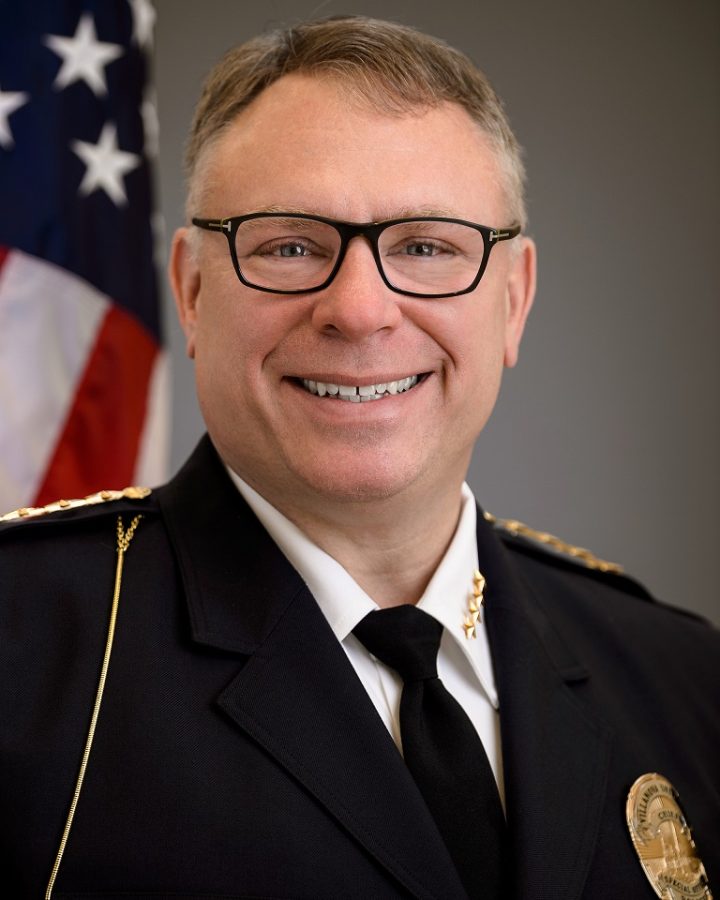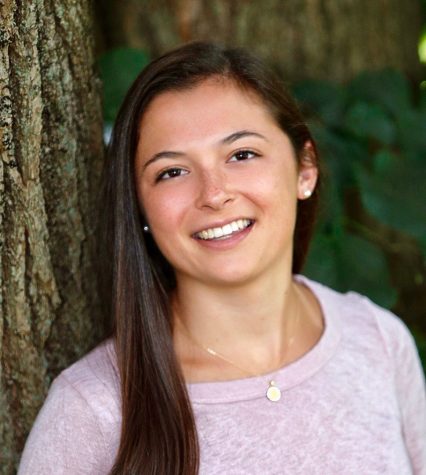Chief Tedjeske Celebrates 15 Years at Villanova
© Villanova University/John Shetron
David Tedjeske, Director of Public Safety and Chief of Police, celebrates 15 years at Villanova.
September 14, 2022
This past Friday, Director of Public Safety and Chief of Police David Tedjeske celebrated 15 years at Villanova.
“This is the fourth University I’ve worked at, and by far my favorite University, my favorite place,” he said.
Tedjeske, originally from Johnstown, PA, started his career in August of 1988 as an officer at Indiana University of Pennsylvania. From there, he moved to Penn State’s Altoona campus, where he acted as their Chief of Police, before becoming the Director of Public Safety at Clarion University. Finally, on Sept. 10, 2007, Tedjeske joined the ranks at Villanova.
Tedjeske wasn’t a huge college basketball fan before coming to campus, but guess what ended up being his favorite memories?
“Without a doubt the two national championships,” he said. “It was stressful leading up to it, with planning and everything, but it was just awesome seeing the place explode.”
Besides a couple incidents of, well, excessive celebration, Tedjeske was struck by the excitement of the students.
“It was unbridled joy and happiness,” he said, describing those two special days in 2016 and 2018. “I’ve never seen so many people happy at one time. It was really cool”
Yet, the spirit that Tedjeske loves about Villanova doesn’t just exist around basketball season.
“Another highlight, overall, is that students are just really good people, deep down inside good people,” he said. “The faculty and staff as well. I’ve made a lot of friends, and I’ve worked with a lot of students over the years that I’ve enjoyed getting to know and that I’ve been happy to help along the way.”
The University has changed immensely over the course of Tedjeske’s 15 years here. In the University’s President’s Report for the ’07-’08 year, Villanova received 15,102 applicants for the Class of 2012, with a 39 percent acceptance rate. This year, for the Class of 2026, Villanova received 23,813 applicants, with a 23% acceptance rate.
“The University has really grown and developed, not necessarily in size but in national profile, along with the constant facilities changes too,” he explained. “The expectations get higher. You’re doing security planning for national championships, so you’re really in the spotlight. It has definitely been challenging.”
Another challenge Tedjeske has faced is getting ahead on technology to keep students safe, but he’s thankful that the University is willing to work with him on this as well.
“What has struck me about being here is how much support there has been for the safety function at the University,” he said. “They’ve been willing to invest in technology, people, and programs. I can’t say enough good things about the place.”
Another challenge during Tedjeske’s 15 years at the University was Villanova’s creation of its first police department.
Before 2016, Villanova just had a security department with no police officers.
“We started with three officers, and I was one of them,” he said. “Today, we have about 50 public safety officers and 25 police officers.”
All of the police officers are armed, and this decision by the Board of Trustees was met with backlash from students. Tedjeske believes this was the right decision to keep the community safe, and he worked hard to show students that the officers are allies to the community, not adversaries.
“As a student you know, if you have to call for something, and whoever shows up, whether it’s a police officer or a public safety officer, you just want to be treated kindly and with compassion and respect,” he said. “You want somebody who’s going to genuinely care about your issue, and we look [to hire] people who have empathy, who are problem solvers and who are reasonable people.”
As Tedjeske continues his work as Director of Public Safety and Chief of Police for the University, he hopes to improve community relations, to stay aware of the emerging issue of mental health and to prepare for active shooter situations.












